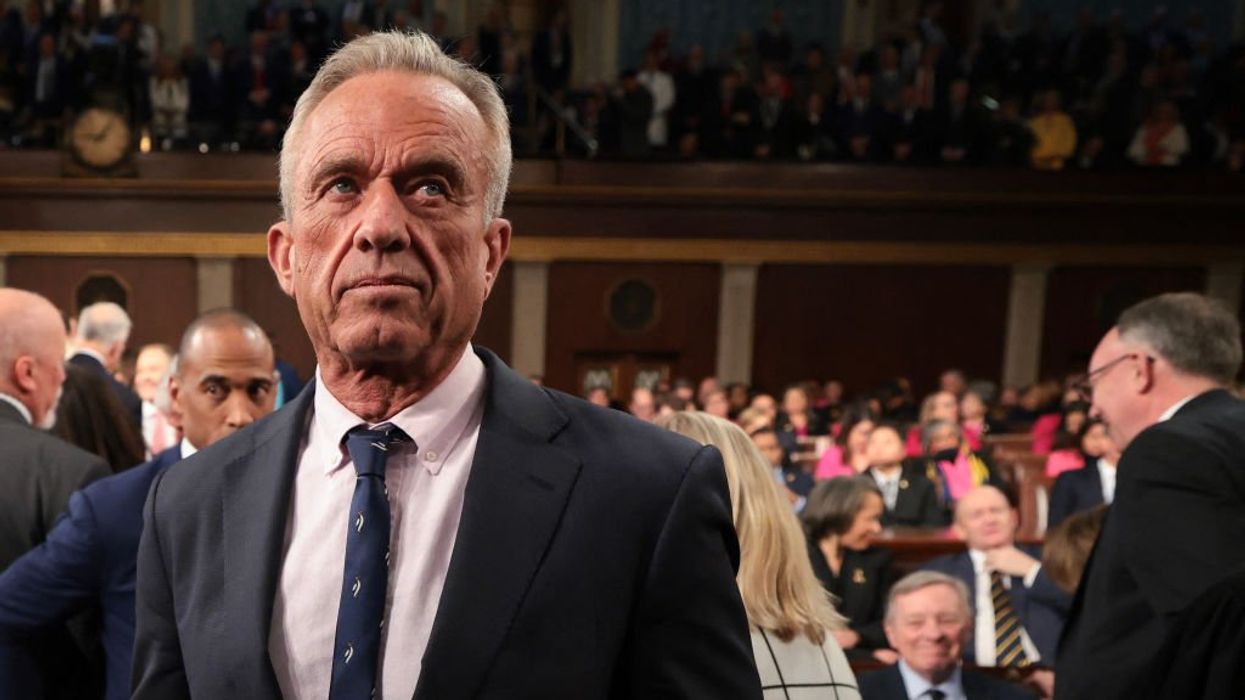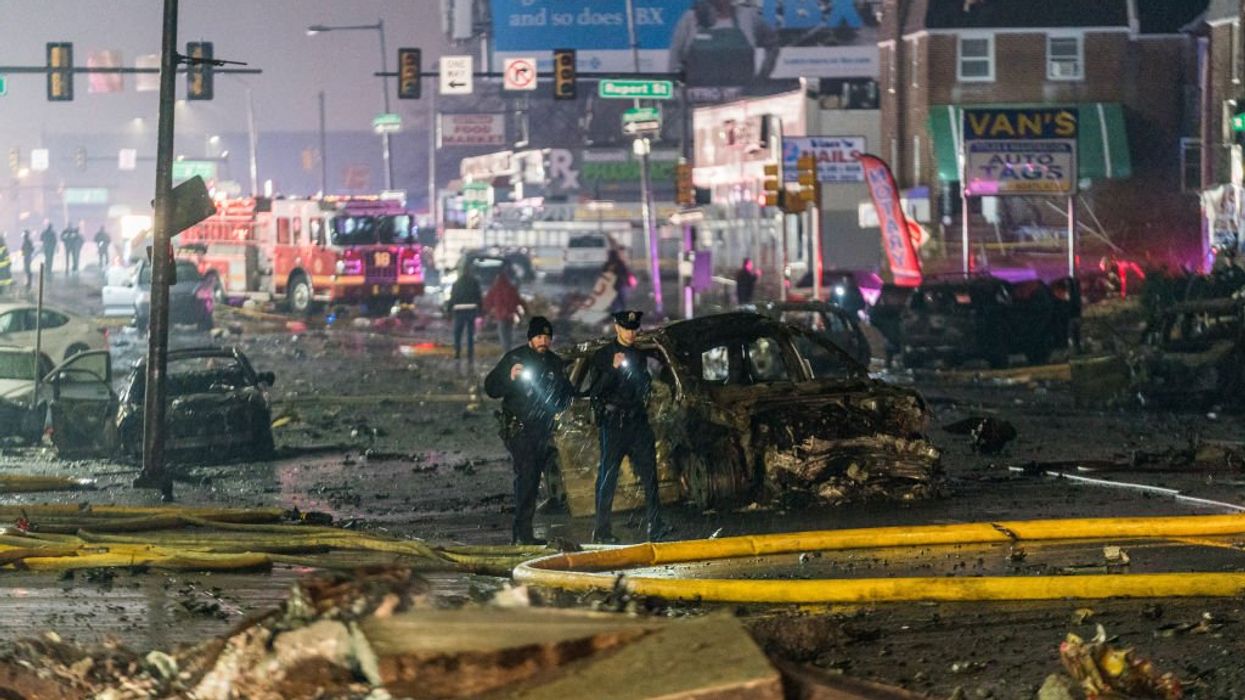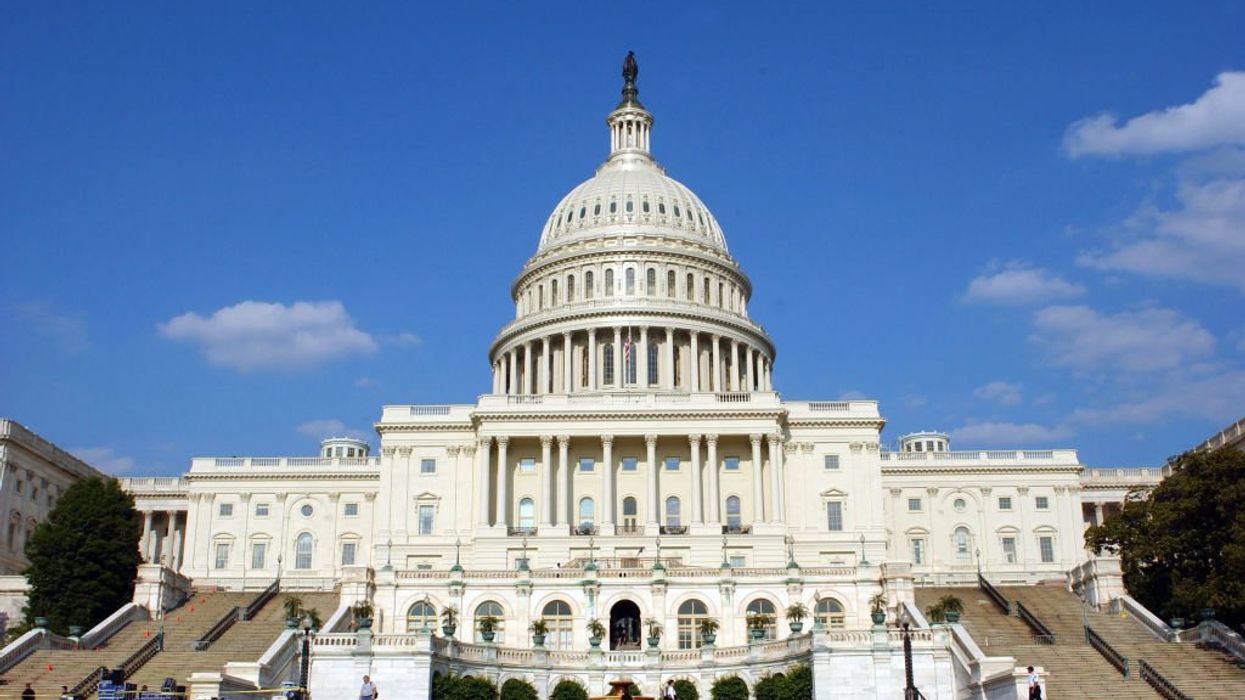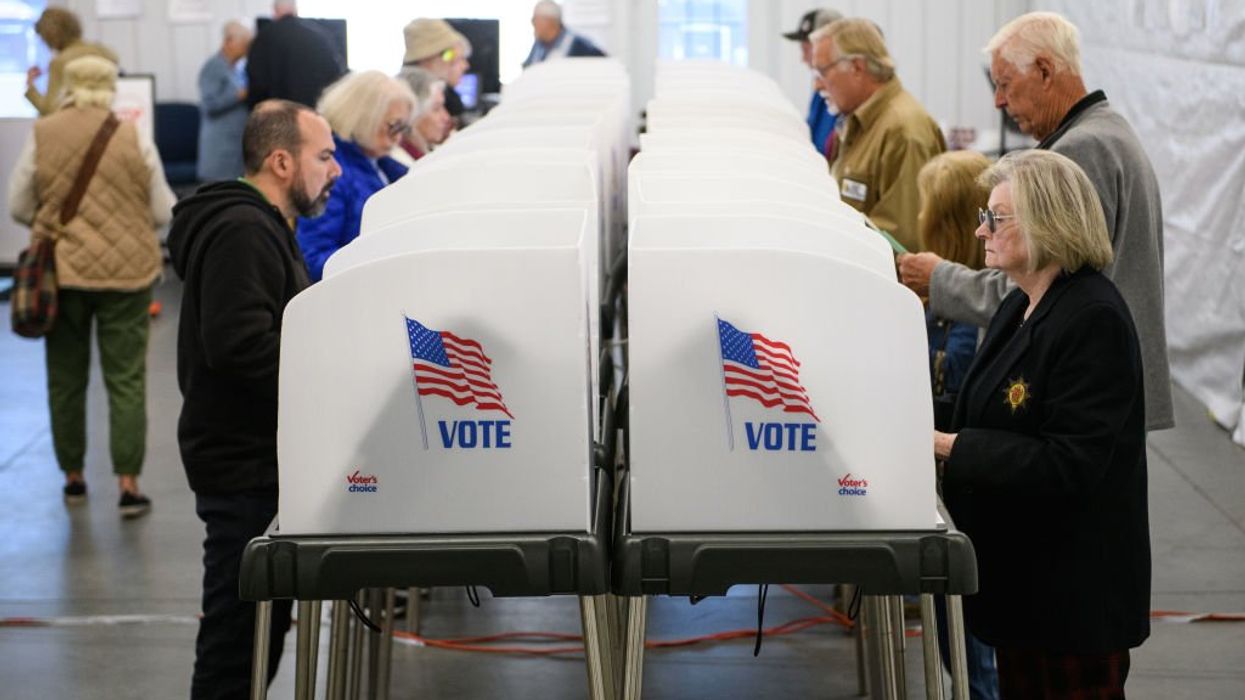A generation has passed since the Cold War ended — and along with it, a true understanding of communism. Young voters today grew up in school systems where capitalism was often a dirty word. They heard the siren call of socialism and its promise of being the great equalizer. They’re in for a rude awakening.
In this series, Glenn discusses the origins of communism, what it really means and what lurks behind the pleasant label of “democratic socialism.”
The four-part series is compiled below for your convenience.
Part I: How It’s Marketed
When Karl Marx was born in Prussia (now part of Germany) in 1818, 94 percent of the world’s population lived in poverty. 84 percent lived in extreme poverty. Feudalism as an economic system left a lot to be desired, like food. The capitalist system, under the Constitution of the United States, changed all of that dramatically.
In one of the greatest achievements in the history of mankind, just 9.6 percent of the world’s population lives in extreme poverty today. Back in 1818, America was just 42 years old and still developing, but it was already becoming the envy of the world. The capitalist — or free market — system was beginning to take hold and pull this country’s citizens out of poverty. It offered new opportunities for millions of citizens and immigrants were beginning to flood its shores.
Europe was a different matter. Monarchy and feudalism was still embedded throughout much of the continent. But great change was taking hold. Industrialization was bringing scores of people from the country to the cities — which were quickly becoming overcrowded. This led to massive discontent.
Marx, who despised what he saw of capitalism, would take advantage of this discontent, becoming radicalized at an early age.
After receiving his doctorate in philosophy, Marx and his wife moved to Paris in 1843, where he would meet a man who would become his life-long friend and colleague — Friedrich Engels. The two had supposedly been drawn to the plight of the workers from their childhoods. They both believed profits generated by the companies that employed them were stolen from wages the workers should have received.
As the two fed off each other, they became more and more radical in their thinking, until they became all-out revolutionaries and were both expelled from France. They moved to Belgium and in 1848, began to work on a pamphlet to share their beliefs. Initially entitled A Communist Confession of Faith, the pamphlet — written mostly by Marx — was published as The Communist Manifesto.
In 1867, Marx wrote another handbook for communist thinkers, Das Kapital. It was published in his home country, Germany, and translated into many other languages. In it, Marx made the point that capitalism exploited workers, and property rights simply kept rich people rich and poor people poor. He went on to write two additional volumes, which were published after his death at the age of 64 in 1883, by Engels.
Marx never experienced the Communist Revolution he sought in his lifetime. But his ideas would be remembered in the minds of others for decades to come. One young Russian was heavily and immediately influenced by Marx’s writing — a 17-year-old boy named Vladimir Lenin.
Part II: The Scourge Spreads
Communism’s first leader — Vladimir Lenin — fell ill and died in 1924, setting the stage for Josef Stalin. Just as it had been under the first few years of communist policies, the Soviet Union fell into another great famine in the early ’30s. Stalin brutally kept food from starving people, ordering his soldiers to shoot and kill peasants that came near it. Adding to the five million who had succumbed to the famine of 1921, another six million people died.
Former Ukrainian president, Victor Yushchenko, in a speech to the United States, put the total number of his dead countrymen at 20 million. It was essentially a genocide of the Ukrainian people, believed to have been planned by Stalin to eliminate the Ukrainian Independence Movement.
By the 1920s and 1930s, an Austrian named Adolf Hitler, once considered a joke in Germany, was a joke no longer. After joining and rising to the top of the National Socialist German Workers Party — the Nazi Party — Hitler attempted a coup in 1925, winding up in prison where he wrote Mein Kampf.
In Mein Kampf, Hitler laid out his intentions for ridding Germany of Jews and invading multiple nations. Somehow, the book captivated the imagination of many Germans. Hitler himself made a fortune from the proceeds. In 1933, he became chancellor of Germany and began implementing the policies he’d laid out to the German people. Hilter saw his brand of National Socialism as much more progressive than Soviet Communism.
Despite their animosity, the Communists and the National Socialists shared a thirst for blood and a lust for power. Hitler launched World War II with the invasion of Poland, and Germany then marched into France and Belgium. Soon, Europe was entrenched in the biggest and deadliest war in human history, the “workers” they spoke fondly of trampled in the ascension to power.
Before it was over, Hitler and his National Socialists had conducted the horrific Holocaust, with the extermination of six million Jews, and tens of millions more dying as a result of the war.
By the end of World War II, Mao Zedong had gained control of northern China. He had convinced impoverished peasants to fight against Chinese nationalists, promising redistributed land and lower taxes.
Mao’s forces swept to victory, and the nationalists fled to Taiwan. But the poor in China never saw the promised equality or redistribution of wealth. Rather, Mao oversaw the starvation and slaughter of 60 million Chinese.
By 1981, five years after Mao’s death, 85 percent of China’s population lived in abject poverty. Yet Chairman Mao’s image appears on hipster T-shirts and coffee cups around the world, even showing up on Obama’s Christmas tree as a White House Christmas ornament in 2009.
As communism continued to spread across the Asian continent, World War II ended with Soviet troops occupying North Korea and U.S. troops in South Korea. The Soviets installed a North Korean communist leader to head the new communist government of North Korea. The Eastern Hemisphere had seen virtually nothing but bloodshed, oppression, and war during the first 33 years of communism and national socialism.
Unfortunately, communism eventually infected the Western Hemisphere, where another ruthless communist rose to power. Che Guevara, yet another Marxist revolutionary born to wealthy parents, was a ruthless, racist killer who seemed to have contempt for all those he pretended to care about. Like Mao, he is widely celebrated today by many on the American left as a hero of the worker and minorities.
According to the Black Book of Communism, during just the first year of Che’s revolution, firing squads executed 14,000 people. He sent thousands more, including homosexuals, to concentration camps. Che plotted the destruction of the Statue of Liberty, the Liberty Bell, the Washington Monument, as well as bombing Macy’s, Gimbels, Bloomingdale’s and Grand Central Station in New York City. In 1967, Che’s reign of terror finally ended, when he was executed by firing squad.
Despite the wake of oppression and death left by communism all over the world — 100 million peacetime deaths and millions more during revolutionary wars — many continue to glorify it to this day.
Part III: The Rise in America
America has been the single biggest force in changing the fortunes of the world, more than any other nation ever conceived. As such, you would assume the nation would be celebrated. And with many, it is. But with others, it’s mocked, ridiculed, derided, blamed and demonized. And then there are those within its own borders who have sought to fundamentally transform it.
Ever since communism took root in Russia and began spreading its philosophy around the globe, the United States has been fighting its spread from the outside. The more difficult battle, however, has come from within. Even with the freedom, prosperity and quality of life in America, for a variety of reasons, there have always been dissenters.
At the turn of the 20th century, men like Teddy Roosevelt and Woodrow Wilson adopted progressive ideology, believing the Constitution to be a living, breathing document. Like socialists and communists, progressives believe more in government than the individual. For them, the power and influence of government is the key to achieving social justice.
The term “social justice” has long been a euphemism for socialism and communism. Progressives share much in common with both socialists and communists, but progressives are simply more patient, willing to progress slowly, rather than through revolution.
In 1920, faced with a depression even greater than that of 1929, the Harding-Coolidge administration took a hands-off approach to government and cut spending in half. The economy bounced back almost immediately, bringing in the Roaring Twenties.
In 1929, however, the Hoover administration took the opposite approach, intervening to deal with the crisis. And in 1932, newly elected progressive Democrat Franklin Roosevelt became even more committed to government intervention and programs. The depression lasted another 13 years in America, much longer than the rest of the world, due to FDR’s so-called New Deal, with sky-high unemployment, rationing, inflation and a decade of misery.
By the ’30s and ’40s, suspicions were rampant that communists had infiltrated the highest levels of the U.S. government, although hard-core proof was hard to come by. Even U.S. President Franklin Roosevelt seemed to share the ideology of communists, proposing a second Bill of Rights that outlined work, rest and leisure, health protection, care in old age and sickness, housing, education and cultural benefits — rights included in the Soviet communist constitution.
The late 1940s and ’50s were a dangerous time for the United States. The Soviets had just successfully tested their first nuclear weapon after Soviet spies had stolen the technology from America. Communists took over China. And North Korean communists invaded South Korea, bringing us into yet another war. And a senator from Wisconsin, Joel McCarthy claimed to have the list of some 57 communists in the State Department. Eventually, even Hollywood entertainers, actors, directors and producers were blacklisted.
The social upheaval of the 1960s made the perfect breeding ground for a Marxist community organizer named Saul Alinsky to significantly influence young minds. Alinsky was a Marxist agitator, who believed that people could be agitated — even if they didn’t know they needed to be. The youth, affected by Alinsky’s Rules for Radicals, would grow up heavily influenced by him. However, rather than protest and agitate, they decided to effect change from the inside the political system.
Part IV: American Radicals
The lofty goals and idealistic promises of communism include income equality, thriving economies and perpetual peace. In essence, Utopia on earth. In reality, communism has resulted in millions killed during peacetime, continual war (or the threat of it), economic disaster, state-controlled media, governmental lies, labor camps, concentration camps, starvation, police states, lack of freedom and state-sponsored atheism. By its fruits ye shall know them.
Thanks in large part to the Constitution of the United States of America, Americans have largely avoided the fruits of communism --- but not entirely. There are those who believe America should scrap its founding principles and embrace Marxism, communism and socialism.
While very few openly advocate for communism, most hide behind the gentler moniker of Progressivism. Like Marxists, progressives seek social justice and the redistribution of wealth to obtain income equality. Unlike Marxists, they try to do it within the system rather than through revolution.
Some of American's radicals from the 1960s are now respected professors or politicians. Illinois' Bobby Rush, for instance, who cofounded the Illinois chapter of the Black Panthers is now a U.S. congressman from Illinois. This man who has helped write and pass legislation for the United States of America, had his apartment raided when he served as the defense minister for the Black Panthers. Police discovered illegal firearms, including rifles, a shotgun, training manuals on explosives, booby traps and an assortment of communist literature and propaganda.
Another respected member of American society is Bill Ayers, the cofounder of the violent, communist revolutionary terrorist group called the Weather Underground. Ayers is on record recounting an event in which a room of highly educated revolutionary figures plotted the logistics of eliminating 25 million Americans who were avowed capitalists that could not be "re-educated." Ayers later became a fugitive after bombings and plots targeting the military, police, the U.S. Capitol Building and the Pentagon. Astonishingly, Ayers never served time for his involvement with the Weather Underground, and later became a professor of English at the University of Illinois at Chicago. He was also a neighbor and fellow board member with another Chicago radical --- the future President of the United States, Barack Obama.
Obama spoke openly about preferring the company of radicals in college. What concerned so many about Obama was the sheer number of people around him throughout his entire life engaged in detestable acts that were contrary to the principles of the Constitution of the United States.
In his book, "Dreams from My Father," President Obama told of his close relationship with his mentor Frank, who turned out to be the card-carrying member of the Communist Party --- Frank Marshall Davis.
Obama's birth father was a Kenyan communist. His mother, a radical, as were his grandparents. After college, Obama's spiritual guide and mentor was Pastor Jeremiah Wright. He and Michelle attended his church in Chicago and listened to his sermons for more than 20 years, where Wright preached Marxist liberation theology and anti-Americanism.
The Marxist ideology of class warfare is a theme running rampant through the current election cycle for the next president. Hillary Clinton has been stoking the flames of class warfare. Self-avowed socialist Bernie Sanders is running is running on a platform of policies enshrined in the Constitution of the Soviet Union.
Certain Marxist principles have become so persuasive in America that progressives have not just taken over the Democratic Party, but they also have a foothold with the Republican Party. Somehow, the ideology that has produced more suffering on earth than literally anything else ever, has caused more peacetime death than anything, with the possible exception of infectious disease, has become celebrated.
Whatever the reality, the class warfare conducted by the left in America seems to be having an impact: There is a growing perception that communism and socialism are superior systems. In a recent poll, 11 percent of Americans believe communism is a morally superior system and 13 percent were unsure. Just 53 percent of Americans surveyed believed capitalism is better than socialism. A whopping 58 percent of America's college students have a favorable impression of socialism and 56 say the same for capitalism.
One of these ideological and economic systems --- capitalism or communism --- is responsible for pulling the world out of the Dark Ages and into the light of prosperity. The other is responsible for death and misery on an epic scale.
Listen to the Full Series on Communism

















